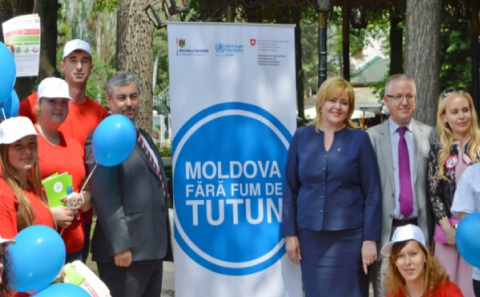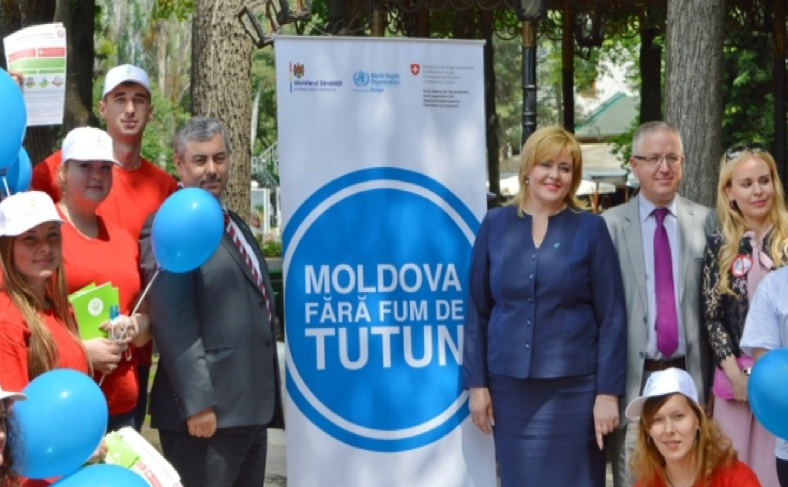
As of September of 2015 in Moldova, smoking is prohibited in all enclosed and semi-enclosed spaces that are open to the public, and within 10 meters of the entrance to these. It is illegal in all places of work, and in public transport and private transport carrying children under age 18. Descriptions such as ‘light’ and ‘ultra’ cannot be displayed on packaging, and redress laws for tobacco exposure penalize not only smokers but also employers who fail to provide a smoke-free workplace.
Moldova’s set of tobacco laws are significant in a country where, in 2013, tobacco-related illness was estimated to take up 15% of total health expenditure. Until the 1990s, Moldova produced 40% of the USSR’s annual tobacco crop (tobacco farming is negligible today); a 2012 European Health Report by the World Health Organization (WHO) gave it one of the highest rates of smoking among men in the European region.
Moldova’s new approach to tobacco regulation was facilitated in part by the inter-sectoral stakeholder engagement coordinated by the EU-Luxembourg-WHO Universal Health Coverage Partnership (UHC Partnership), which launched in Moldova in April 2012. The UHC Partnership collaborated with local stakeholders in healthcare to gather information and facilitate a study on risk factors that included tobacco; it also facilitated a national policy dialogue bringing different sectors to collaborate on the issue. “The series of dialogues coordinated by the UHC Partnership became a reason for stakeholders to sit together”, says Andrei Matei, Health Systems Officer at the WHO Country Office in Moldova. “It was the catalyst for different sectors and levels to come together and discuss public health issues around smoking, including how to reduce tobacco consumption while at the same time not harming the economics of the country”.
At the National Health Forum initiated by the UHC Partnership, different sectors of government were able to discuss the implementation of a framework for tobacco control, which was eventually presented to parliament. “WHO contributed to designing the policy dialogue logic: topics, rationale, linkages in the messaging”, explains Matei. “We invited international experts, including representatives from neighboring countries, who engaged in a dialogue with the parliament and other experts to help draft the new law”.
Capacity-building workshops were organized with different target groups (including the hospital and retail industries, news media, and some 500 police officers and 300 medical workers). These were helpful in counteracting industry opposition; together with TV and radio spots and with the distribution of informational materials, they raised tobacco control awareness across the country before different parts of the law entered into force beginning in January 2016. A national guideline on inspection was developed with joint support of the Swiss Agency for Development and Cooperation, and trainings and educational materials were delivered with joint support from civil society groups.
In its first 7 months, the rate of compliance with the tobacco law in public areas (restaurants and bars, educational and health institutions, transport, etc.) was over 92%, while industry figures show this has had no negative effect on their profitability. “You can see the impact of the law in any public space”, says Matei.
Today, Moldova is continuing to build capacity by running a national information campaign, sharing information with primary healthcare units, and building a strong national toll-free quit line service. Meanwhile the UHC Partnership plans to carry out further impact studies within the year, and will continue to support both national and local health fora. Six of these were planned with local public authorities and stakeholders in 2017 – testifying to the critical value of the inter-sectoral conversation encouraged by the UHC Partnership.
